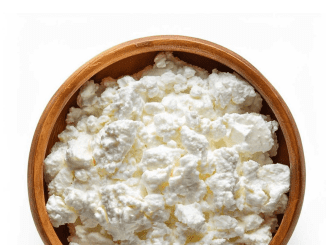Freezing bread is a common technique used to extend its shelf life, especially for those who love the taste of homemade bread. With its freshness and lack of preservatives, homemade bread tends to spoil faster than store-bought varieties. So, if you’ve ever wondered whether freezing homemade bread is effective and how long it actually lasts, you’re in the right place. My cousin swears by freezing his bread and claims it’s still delicious three months later. But is that true? Let’s explore how freezing affects bread and how long you can expect it to stay good in the freezer.
How Freezing Affects Bread

Freezing bread works because low temperatures slow down enzyme activity and microbial growth. This essentially puts the bread into a “suspended animation,” where mold growth and staleness are delayed. But how exactly does freezing affect the bread’s texture and flavor over time?
When bread is left out, starches in the bread begin to crystallize, leading to staleness. Freezing halts this process, preserving the bread in its current state. While freezing preserves the moisture in the bread, improper storage can result in freezer burn, which can make the bread dry and tasteless. The key is to freeze the bread properly to maintain its quality for as long as possible.
Can Bread Really Last for Three Months in the Freezer?
Yes, bread can last in the freezer for up to three months without losing much of its quality. However, it’s important to note that bread stored for more than a few months may still be safe to eat, but the flavor and texture will start to deteriorate. Let’s break it down further:
- First Month: In the first few weeks to a month, frozen bread will taste almost identical to its freshly baked state. The texture and flavor are preserved well during this period.
- One to Three Months: From one to three months, the bread should still be enjoyable, although you might notice slight changes in taste or texture. The longer the bread stays in the freezer, the more likely it is to lose some of its moisture and flavor, especially if not stored properly.
- After Three Months: Beyond the three-month mark, the bread is still safe to consume, but the quality will decline more noticeably. The flavor may become muted, and the texture could become drier. Freezer burn may also start to affect the bread if it wasn’t tightly sealed.
Best Practices for Freezing Bread
If you’re planning to freeze your bread for long-term storage, there are a few best practices to ensure it stays fresh and delicious:
- Freeze Bread Quickly After Baking: To preserve the bread’s freshness, freeze it as soon as it cools after baking. The sooner you freeze it, the better the quality when you thaw it later.
- Slice Before Freezing: It’s much easier to thaw individual slices rather than an entire loaf. Slice the bread before freezing so you can take out only what you need, reducing the chances of repeated freeze-thaw cycles that degrade the bread’s texture.
- Proper Wrapping Is Crucial: Wrap the bread tightly in plastic wrap or aluminum foil. After that, place it in a freezer bag or an airtight container to protect it from freezer burn. The goal is to remove as much air as possible before sealing to keep moisture locked in.
- Label with Freezing Date: Don’t forget to label the bread with the date you froze it. This will help you keep track of how long it has been in the freezer and remind you to use it before the quality starts to decline.
- Thaw Only What You Need: When it’s time to enjoy your bread, thaw only as much as you need. Take out individual slices or small portions to avoid thawing the entire loaf multiple times. Repeated thawing and refreezing can cause the bread to dry out and lose its flavor.
How to Thaw Frozen Bread

Thawing frozen bread is simple, and there are a few methods depending on how quickly you want to use it:
- Room Temperature Thawing: For best results, thaw your bread at room temperature. Simply remove the bread from the freezer and let it sit in its wrapping for a few hours. This method ensures that the bread gradually returns to its original texture without becoming too dry.
- Toaster or Oven: If you’re in a hurry, you can pop the bread slices straight into the toaster or oven. This is a great way to revive the crust and make it crispy again. Set the oven to 350°F and warm the slices for about 10 minutes.
- Microwave Method: If you’re really in a rush, the microwave is an option. However, use this method with caution, as microwaving bread can make it chewy or rubbery if not done carefully. Wrap the bread in a paper towel and microwave it in short bursts (10-15 seconds) until it’s thawed.
Signs That Frozen Bread Has Gone Bad
Even though bread can last a long time in the freezer, it’s important to watch for signs that the quality has degraded too much. Freezer burn is the most common issue. If the bread has large ice crystals or feels excessively dry and crumbly, it may not be enjoyable to eat. Additionally, if the bread has absorbed any strange freezer odors, it might not taste right. Bread that’s been frozen for too long will have a noticeably stale taste or a tough texture, so it’s best to use it before it reaches this stage.
Can Freezing Bread Compromise Its Nutritional Value?

Freezing bread doesn’t significantly affect its nutritional value. The key nutrients, such as fiber, vitamins, and minerals, remain intact throughout the freezing process. The only concern is potential moisture loss, which could impact the texture. As long as the bread is wrapped properly and consumed within the recommended timeframe, the nutritional benefits of homemade bread will be preserved.
In Conclusion: Is Freezing Bread for Three Months a Good Idea?
So, does my cousin’s claim hold up? The short answer is yes—freezing bread for up to three months is a great way to extend its shelf life while maintaining much of its original flavor and texture. By following the best freezing and thawing practices, you can enjoy homemade bread long after it’s been baked. While bread stored beyond three months is still safe to eat, the taste and texture may begin to decline. Proper wrapping and storage techniques are essential to keep your bread tasting as fresh as possible. So, if you’re a fan of baking homemade bread, go ahead and freeze it with confidence—just be sure to eat it within that three-month window for the best results!


